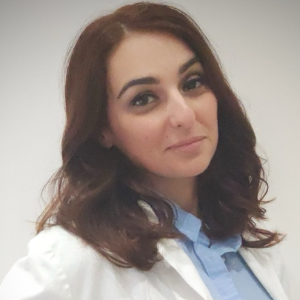Title : Investigating specialized metabolism as an integral factor to improve oxidative stress resilience in native plants exposed to metalloid naturally contaminated soils
Abstract:
The phenomenon of global climate change (GCC) has resulted in alterations to the frequency of climate change, leading to the manifestation of significantly more severe environmental disruptions in comparison to those observed in the past. The presence of abiotic stresses, such as drought, heat, salt, or heavy metals and metalloids, including arsenic (As), serves to exacerbate the effects of GCC. Flavonoids, a prominent group of secondary metabolites, possess a variety of functions in plants, including the capacity to protect against abiotic and biotic stresses through their antioxidant activity. However, the function of flavonoids in naturally tolerant wild plants growing in stressful soils remains to be fully elucidated through experimental means. Soils developed on the volcanic substrate, which constitutes a substantial portion of the Campanian region and the Etna (Sicily) surroundings, are characterized by a high concentration of neo-formed amorphous alumino-silicates and organo-mineral compounds, exhibiting a remarkable binding capacity for trace metals, such as As. It is noteworthy that several species from the Brassica genus hold significant agronomic and economic value as heavy metal accumulators. This is exemplified by Brassica rapa (B. rapa), which has been documented to exhibit notable tolerance to As-rich soils. This study explores the heavy metal tolerance and accumulation capabilities of different parts of. B. rapa cultivated in hydroponic systems, with a particular focus on the presence of heavy metal, oxidative stress damage and soil contamination. Hydroponics offers a controlled, resource-efficient platform to optimize phytoremediation potential while minimizing soil depletion and secondary contamination. However, the role of flavonoids in the oxidative stress tolerance of B. rapa remains to be elucidated. The tolerance mechanisms, as adaptive traits, evolved in this species can become a knowledge milestone for future phytoremediation. In the present project, through untargeted transcriptome and metabolome approaches, the role of flavonoids as ROS scavengers within the tolerance strategy of wild B. rapa naturally growing in soils affected by arsenic is investigated. This is assessed through geochemical approaches, by performing transcriptome and metabolome profiling analyses. The RES2OX project has been funded by the Italian Ministry of Research and University in the PRIN: PROGETTI DI RICERCA DI RILEVANTE INTERESSE NAZIONALE – 2022 PNRR Call. It includes three research partners from the National the University of Messina, Research Council of Italy and the University of Sannio.



